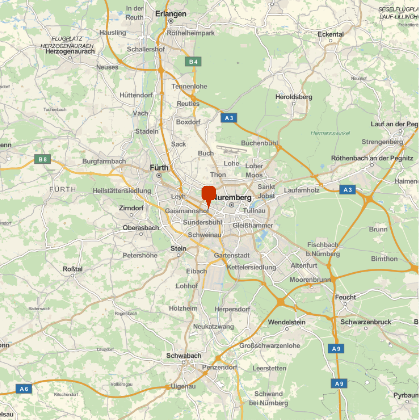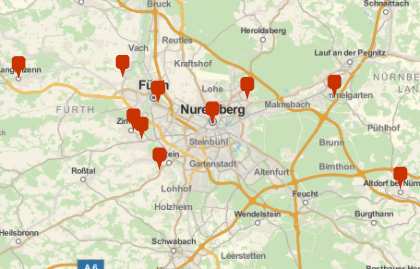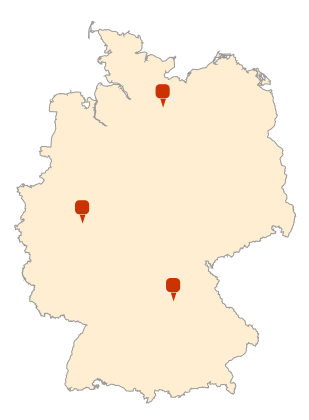I'm trying to draw markers for a list of Germany ZIP codes onto a map. Following the official documentation, it seems as if using GeoMarkeron values like
Entity["City", {"Nürnberg", "Germany"}]
should work. But Mathematica does not find any location information for German cities:
GeoGraphics[
{GeoMarker[{Entity["City", {"Nürnberg", "Germany"}]}]}
]
Unable to obtain location information for Entity[City,{Nürnberg,Germany}].
I tried several combinations with city names and ZIP codes, but to no avail. But when I search for Nürnberg on Wolframalpha, they clearly have data on the city!
How can I draw markers from ZIP codes in German cities?





